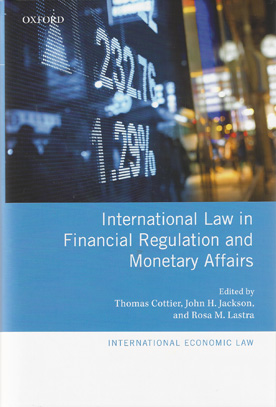
The early twenty-first century has seen a conspicuous absence of formal international law concerning money and finance. This book argues that this lack of formal international regulation was a significant contributing factor to the global financial crisis that began in 2007.
It focuses on this lack of global substantive principles and 'hard law' rules in the field of financial regulation and monetary affairs, and analyses the emerging framework within international law that aims to govern financial institutions and markets. The global financial crisis has demonstrated the essential need for financial and monetary regulatory reform, and for the establishment of appropriate mechanisms for the settlement of financial disputes and for the regulation of cross-border financial institutions.
This book therefore presents the foundations of solutions that could fill these critical gaps in international financial law. It addresses cross-border issues, financial regulation, and provides detailed analyses of monetary policies and regulation.
This book is an updated collection of papers first published in the Special Edition of the Journal of International Economic Law on 'The Quest for International Law in Financial Regulation and Monetary Affairs' (Volume 12, Number 3, September 2010), which also show that the regulatory hands-off approach was not replicated in other areas of international economic law.
International trade regulation witnessed an increased number of international rules and the reinforcement of a rule-oriented, if not rule-based, approach. Judicial dispute settlement and retaliation, exclusively based upon international ruling and authorization, was reinforced. Given the importance of trade regulation and WTO law, which has an established institutional and legal framework, the book therefore provides a much-needed comparative approach.